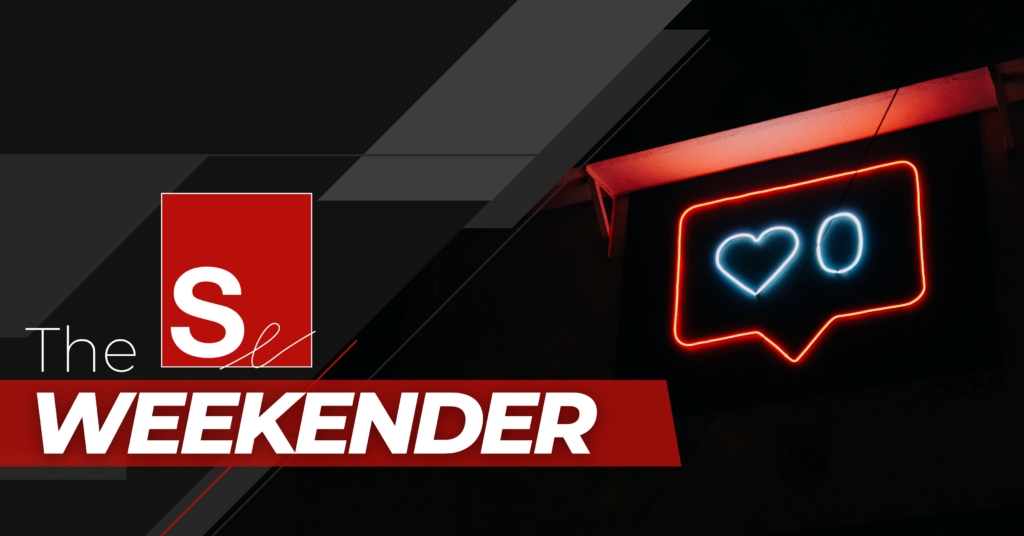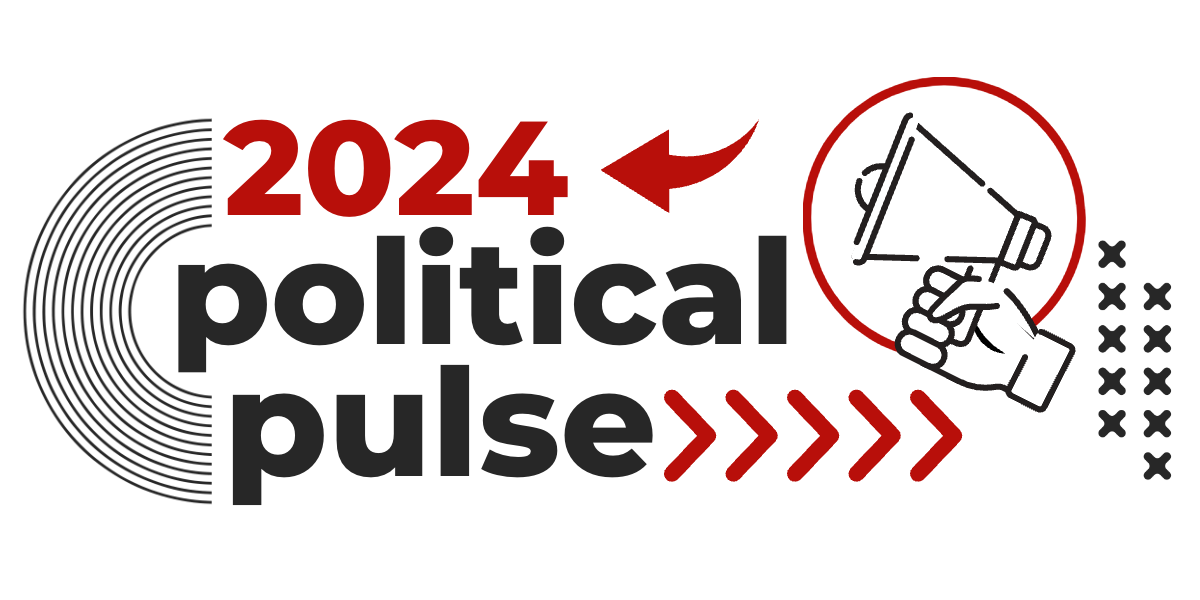DATA POINTS
- 6: The number of GOP candidates expected to be on stage at the second Republican debate
- 65%: The percentage of small businesses that say their business is in good health
- 625: The number of books banned in Texas school districts last school year
- 2000: The number of layoffs at a Kansas General Motors assembly plant due to the UAW strike in Detroit
- 472,000: The number of Venezuelan migrants already in the U.S. who were granted temporary legal status by the Biden Administration
- 568,000: The edge Republicans hold over Democrats in the number of registered voters in Florida after National Voter Registration Day
 Black Women Could Shape the 2024 Election
Black Women Could Shape the 2024 Election
What do the economy, racism, and firearm reform have in common? They are the top issues leading 61% of Black women to be increasingly disappointed in the direction the U.S. is headed. The new poll from The Highland Project showed that it is not just Black women – 69% of Millennial and Gen Z voters are saying the same thing.
Black women have reported an 8% increase in experiencing racism in their everyday lives, alongside a 12% increase in sexism since 2021. The number of Black women who say the economy is worsening and leaving them behind has nearly doubled from 2021 – from 33% to 61%. A potential recession, crime rates, and climate change are other contributing factors to the pessimistic outlook held by young voters and Black women.
This trend spells trouble for Democrats in 2024 since the poll showed Black women’s support for President Biden has fallen by 20 points since his inauguration. Democrats win when Black voters turn out for them – the party has not won a majority of white voters for decades. The pollsters posit that candidates should pursue these critical voters with a “caregiver-centered agenda” that supports Black women through measures that include more accurate education models surrounding slavery and racism history, increased teacher salaries, and the passage of a federal paid family leave policy.
Looming Shut/Showdown
Speaker of the House Kevin McCarthy recently announced the House will be opening an impeachment inquiry into President Biden ahead of the 2024 election. The efforts will delve into President Biden’s family business dealings and will probe allegations against Hunter Biden. Speaker McCarthy faces mounting pressure from the furthest right corner of his party to go on the offensive… or risk his leadership position. Remember, this right flank held his speaker election hostage for four days and 15 ballots earlier this year, so the small group maintains substantial weight.
The White House responded to the inquiry by calling the impeachment efforts “extreme politics at its worst.” White House officials also released a 16-page memo to news and editorial organizations calling on them to separate facts from politics. The memo writes “for years, Republicans in Congress have tried to muddy the waters by attracting media coverage of their allegations…. it is the responsibility of the independent press to treat their claims with the appropriate scrutiny.”
Amidst it all, a government shutdown looms. By September 30, Congress must pass 12 spending bills to avert the shutdown. A continuing resolution, which would buy Congress more time, is not on the table for the far-right Freedom Caucus, and Rep. Matt Gaetz threatened to oust McCarthy from his speakership if he brings a vote on a short-term fix.
Science vs. Depression

In a testament to what we already know about intra-human connectivity, a team of scientists recently sought to discover potential chemical relationships between debilitating depression (or “major depressive disorder”) and lifestyle choice that affects millions.
Over nine years, the team examined nearly 290,000 participants of all ages and identified seven key factors to reducing rates of depression: moderate alcohol consumption, a good diet, frequent exercise, proper sleep, no smoking, moderate sedentary behavior, and social mixing. For those who focused on only one of the seven, their risk for depression reduced by 17%. But those whose who prioritized all seven were 72% less likely to experience depression. Healthy sleep habits, foregoing smoking, and social mixing were the most important of the seven factors.
Read More at News Medical Life Sciences
X Tries a New Formula

This is certainly not the first time Musk instituted a platform-wide shakeup. Since he bought Twitter for $44 billion, he changed its name to X, charged $8 a month for a verification badge, gave paying users the ability to edit posts and tweet more than 240 characters, added a view count to posts, and instituted a 400-per-day follow limit.
While it’s unclear whether Musk will follow through with his plan to charge every X user a monthly fee, the pay-to-play change may drive down participation rates.
A Friend for Climate Strategies… and Economic Development

A massive wave of federal incentives and murmurs of a potential EPA rule requiring all power plants to be nearly zero-emission by 2040 have quickened innovation. For power plants to successfully sequester their emissions, they will need to develop and implement CCS technology, and then transport the carbon to sequestration zones (which may be on-site in some cases, but otherwise moved by pipeline).
Projects are in progress across the country. Developers in Texas hope to install the world’s largest direct air capture (DAC) project. Dubbed Stratos, the $1 billion installation could remove half a million metric tons of CO2 from the atmosphere every year. A proposed bp project in Indiana seeks to reduce the industrial area’s carbon footprint while making clean-burning hydrogen fuel. And multiple projects in the Midwest are aiming to lower the carbon footprint of corn-based ethanol with CCS.
It’s a big ask, but considering the U.S. emitted 6.3 million metric tons of CO2 equivalent in 2021, there will be a massive payout if it works.
‘Lazy Girl Jobs’ may be the Antidote to Blazing Work Burnout

COVID-19 opened the work-life balance box for young employees who desire a career while maintaining their personal life. Data shows that people who have a strong work-life balance are more productive and take less time off from work in addition to being happier with their jobs.
For individuals interested in pursuing lazy girl jobs, to “work hard, play hard” is synonymous with stretching yourself too thin; rather, “work appropriately, play appropriately” is a more palatable and attainable goal for achieving individual and professional success.
INTERNATIONAL SPOTLIGHT
Putin’s Newest Friend/Arms Dealer/Fellow International Outcast
Dictatorial North Korean leader Kim Jong Un and Russian President Vladimir Putin recently met at Russia’s most important spaceport, the Vostochny Cosmodrome, to finalize an ammunition agreement. After the summit, North Korea’s government vowed “full and unconditional support” for Putin, which the West understands as an arms deal to support the Russian leader’s aggression in Ukraine. While impoverished North Korea holds few resources in abundance, their military reserves are assumed to be filled with Soviet-era ammunition and rockets.
The decision to hold the meeting at the Vostochny Cosmodrome, the flagship facility for the Russian space program, suggests Kim is seeking Russian assistance to develop and successfully launch its own reconnaissance satellites. If launch and orbit technology was a part of the quid pro quo between the two leaders, it would certainly enhance North Korea’s nuclear ballistic missile program. As Putin settles in for a forecasted long fight in Ukraine, he will need ammunition to sustain the pressure. Providing North Korea with food reserves and technology is a light ask for what Putin receives in return.
While an arms deal between Putin and Kim would indubitably support the Russian offensive on the western border, it comes at great cost. The deal further deepens Russia’s isolation amid tightening sanctions that severed its economic access to global markets. North Korea brings baggage too; tensions between the South Korean and American alliance against North Korea are at their highest point in years. If Russia and North Korea are supplying each other with the means to strengthen the other’s military, security outlooks in east Asia grow dimmer.
Read More at The Associated Press




 Black Women Could Shape the 2024 Election
Black Women Could Shape the 2024 Election



